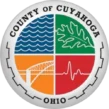1. Introduction
Transparency is the foundation of trust between government institutions and the citizens they serve. In Cuyahoga County, Ohio, the Auditor’s Office plays a critical role in maintaining public confidence through its transparent processes and systems. This article explores in detail how the Auditor’s Office ensures transparency in every aspect of its operations — from property assessments to financial accountability.
For residents, business owners, and public officials alike, understanding the mechanisms behind this transparency not only promotes civic engagement but also helps safeguard the integrity of public funds and property records. Whether you are a homeowner trying to understand your property tax assessment or a taxpayer interested in how your money is spent, this guide will provide a clear and comprehensive view of the practices that promote openness and accountability in Cuyahoga County.
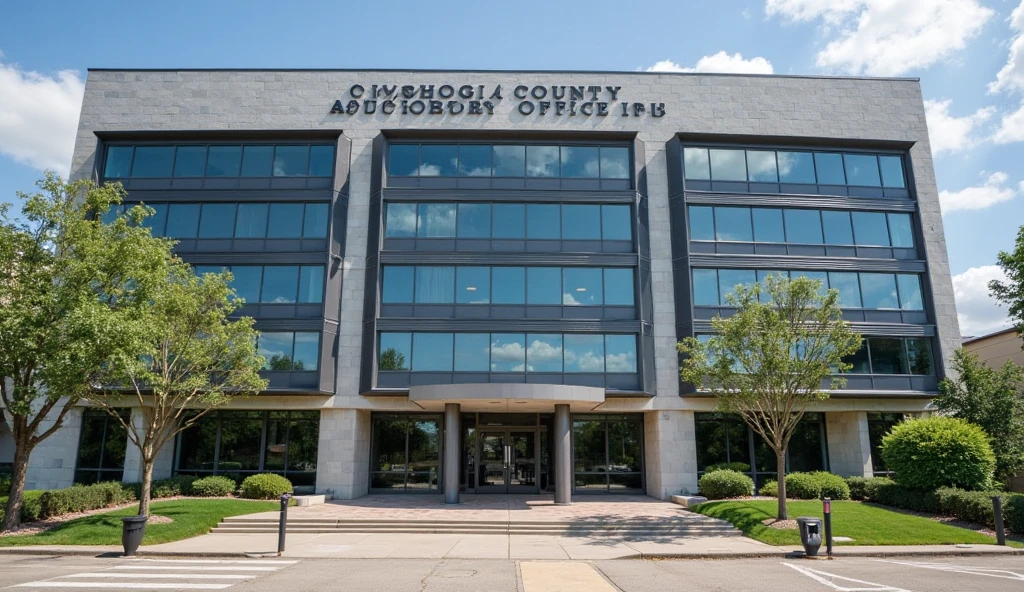
2. Auditor’s Core Responsibilities in Cuyahoga County
The Cuyahoga County Auditor’s Office is responsible for a range of functions that directly impact residents and local governance. Each responsibility is closely tied to transparency and is designed to ensure that public resources are managed with integrity and accountability.
a. Property Tax Assessment
One of the Auditor’s primary duties is to fairly and accurately assess the value of all real property in Cuyahoga County. These valuations are used to calculate property taxes, which fund essential services like schools, roads, and emergency response. To ensure transparency, the Auditor’s Office provides public access to property records, valuation methods, and appeal procedures.
b. Financial Reporting and Oversight
The Auditor is tasked with maintaining financial records and producing regular reports on county income and expenditures. These documents are made available to the public and include comprehensive details on how tax dollars are allocated and spent. The purpose is to hold departments accountable and give residents a clear picture of government spending.
c. Management of Property and Land Records
Accurate land and property records are critical for legal transactions and tax assessments. The Auditor’s Office maintains detailed ownership records, parcel maps, and legal descriptions that are accessible to the public. This ensures that every transaction — from buying a home to transferring land — is based on verified and transparent documentation.
By fulfilling these responsibilities with openness and public access, the Cuyahoga County Auditor supports a government structure that is both efficient and trustworthy.
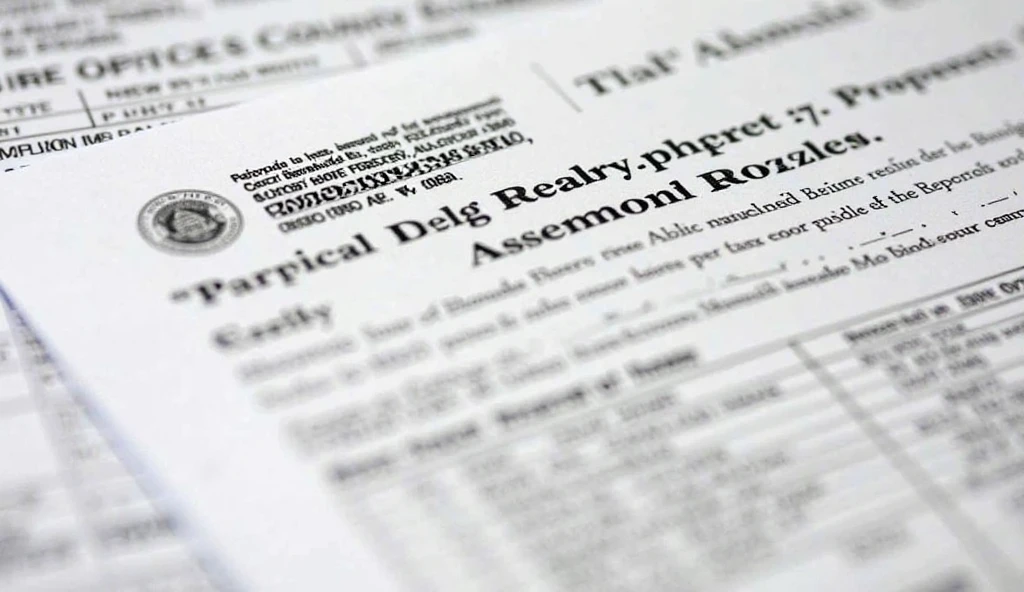
3. Key Systems and Procedures that Promote Openness
The Auditor’s Office in Cuyahoga County has implemented a number of systems designed to make its processes accessible, understandable, and open to public scrutiny. These systems not only provide residents with useful tools but also help ensure that government operations remain accountable at all levels.
a. Public Access to Financial Records
Financial transparency begins with access. The Auditor’s Office maintains a robust online platform where residents can view budget reports, revenue summaries, and department expenditures. These records help taxpayers understand where public funds are going and allow watchdog organizations to monitor fiscal performance.
b. Digital Tools for Property and Tax Search
One of the most utilized services is the Property Search Tool, which allows users to look up information on any parcel within Cuyahoga County. From assessed values to ownership history and tax payment status, these tools are designed to provide instant, transparent access to data that affects property owners directly.
c. Budget and Expenditure Reports
Regularly published budget documents outline the county’s financial priorities and commitments. These reports are open to public review and often include easy-to-understand charts and graphs that break down revenues and expenditures. Transparency here ensures that residents know how county funds are managed and where investments are being made.
These systems are essential not just for compliance, but for creating a culture of accountability where the public can participate in oversight and governance.
4. Checks and Balances in Financial Operations
To maintain transparency in financial matters, the Cuyahoga County Auditor’s Office operates under a strong system of checks and balances. These internal and external mechanisms are designed to prevent mismanagement of public funds and to uphold the highest standards of accountability.
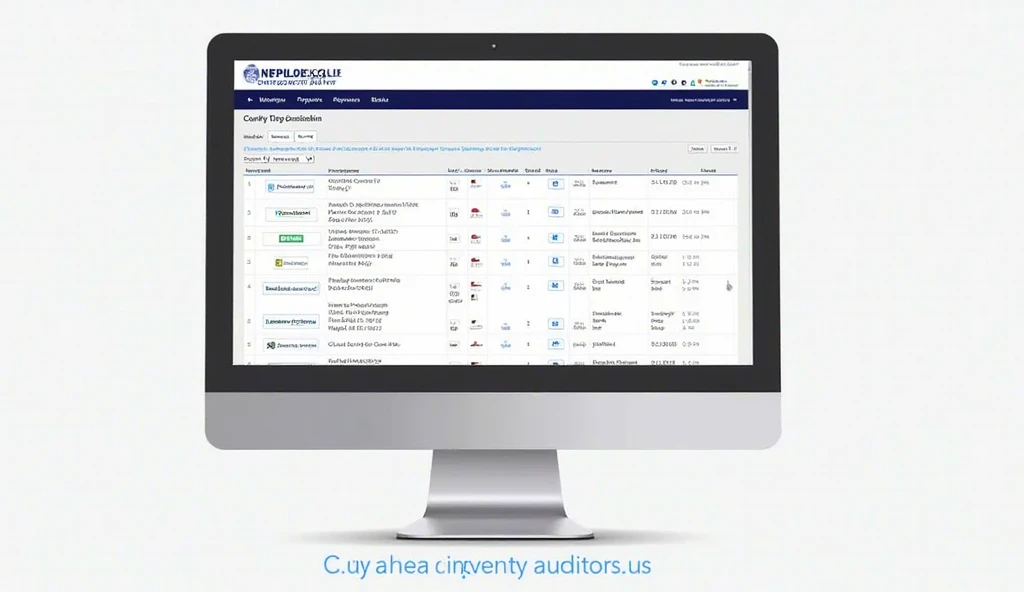
a. Internal Audit Procedures
Internally, the Auditor’s Office conducts routine audits across various departments to ensure that financial transactions align with approved budgets and legal requirements. These audits evaluate everything from payroll systems to departmental expenditures, helping to identify inefficiencies or irregularities before they become larger issues.
b. External Reviews and Oversight
In addition to internal evaluations, the Auditor’s Office undergoes regular external audits conducted by independent entities, including state and federal oversight bodies. These audits provide an impartial assessment of financial operations, strengthening public confidence and validating the county’s financial integrity.
c. Transparent Monthly and Quarterly Reports
The Auditor’s Office publishes detailed financial summaries on a monthly and quarterly basis. These reports are made available on the county’s website and are easy to access for residents, journalists, and watchdog groups. They outline income sources, departmental spending, and fund balances, providing a snapshot of the county’s financial health.
Through these checks and balances, the Auditor ensures that every dollar is accounted for and every transaction is documented — all in service of a transparent government.
5. Community Involvement and Public Feedback Mechanisms
Transparency is not just about open records — it’s also about public participation. The Cuyahoga County Auditor’s Office actively encourages community involvement and integrates public feedback into its decision-making process.
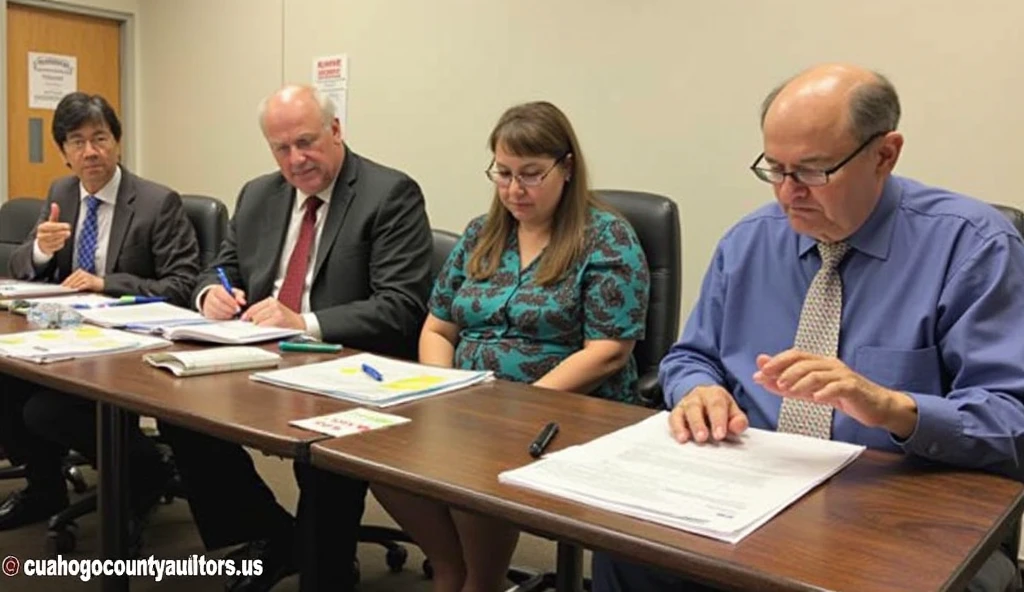
a. Public Hearings and Community Outreach
The Auditor’s Office holds scheduled public hearings, particularly during key decision-making periods like budget planning and property reappraisal cycles. These meetings allow residents to ask questions, voice concerns, and gain firsthand insight into the county’s financial strategies. Outreach initiatives, including workshops and informational sessions, also educate the public about tax assessments and available services.
b. Complaint and Inquiry Channels
To ensure open communication, the Auditor’s Office provides multiple channels for residents to submit complaints, ask questions, or request clarifications. Whether through phone, email, or an online form, these avenues are closely monitored and result in prompt responses — a clear sign of the office’s commitment to transparency.
c. Using Feedback to Inform Policies
Feedback isn’t just collected — it’s used. The Auditor’s Office reviews community input regularly and uses it to improve services, modify internal policies, and introduce new tools or procedures. For example, concerns about property tax accuracy have led to more detailed public guides and improved transparency during valuation processes.
This two-way communication strengthens trust and ensures that the Auditor’s Office stays aligned with the needs and expectations of the residents it serves.
6. Use of Technology to Support Transparency
In today’s digital world, technology plays a crucial role in delivering transparency — and the Cuyahoga County Auditor’s Office is at the forefront of leveraging digital tools to keep the public informed.
a. Online Property Search Portals
Residents can easily access comprehensive property data through online portals maintained by the Auditor’s Office. These portals allow users to search by address, parcel number, or owner name, displaying details like tax history, property characteristics, and assessment information. This level of access empowers homeowners, buyers, and real estate professionals alike.
b. Open Data Dashboards
To make complex data more digestible, the Auditor’s Office offers interactive dashboards that visualize county spending, property values, and revenue sources. These dashboards promote financial literacy and provide a user-friendly interface for residents to explore the county’s financial landscape.
c. Real-Time Budget Tracking Tools
Another significant advancement is the implementation of tools that allow real-time tracking of budget allocations and expenditures. These systems update automatically and offer transparency into how funds are spent — department by department, project by project.
By embracing technology, the Auditor’s Office makes transparency not just a principle, but a daily reality for the citizens of Cuyahoga County.
7. Oversight of Government Spending and Contracts
Managing how public funds are allocated and spent is a key function of the Cuyahoga County Auditor’s Office, and transparency in this area is critical for preventing misuse and ensuring accountability. The office has established structured processes to review, monitor, and report on every major financial transaction — especially government contracts and departmental budgets.

a. Departmental Budget Oversight
Each department within Cuyahoga County is required to submit detailed budgets outlining expected expenditures. The Auditor’s Office reviews these budgets for accuracy, compliance, and fiscal responsibility. Through this oversight, the Auditor ensures that taxpayer money is being directed toward approved and necessary services.
b. Monitoring Public Contracts and Procurement
Transparency in procurement is vital to avoid favoritism and corruption. The Auditor’s Office keeps detailed records of public contracts, vendor agreements, and bidding processes. These records are available for public inspection, allowing any citizen to see how contractors are selected and what terms are agreed upon.
c. Prevention of Waste and Abuse
A dedicated focus on identifying waste, fraud, and abuse is central to the Auditor’s role. The office uses internal checks and modern analytics tools to detect irregular spending patterns, unauthorized transactions, or policy violations. This proactive monitoring protects both county finances and public trust.
Through its strong oversight mechanisms, the Auditor’s Office ensures that every dollar spent serves a public purpose — with full accountability at every level.
8. Accountability Measures and Ethics Policy
Ensuring ethical behavior and holding individuals accountable are fundamental components of government transparency. The Cuyahoga County Auditor’s Office follows strict ethical guidelines and has developed accountability measures that apply to both its internal staff and external contractors.
a. Conflict of Interest Disclosures
All employees and officials associated with the Auditor’s Office are required to disclose any financial interests or personal relationships that may influence their duties. These disclosures help avoid bias in decision-making and are filed in accordance with state and county regulations.
b. Ethics Training and Code of Conduct
Staff within the Auditor’s Office receive regular training on ethics, transparency, and public service responsibilities. This training emphasizes values such as fairness, objectivity, and accountability — creating a culture where integrity is embedded in daily operations.
c. Whistleblower Protections and Reporting Channels
To further encourage ethical conduct, the Auditor’s Office maintains confidential whistleblower reporting systems. Employees and residents can report unethical or illegal activity without fear of retaliation. These protections promote a safe environment where accountability can thrive.
By embedding ethics into the fabric of its operations, the Auditor’s Office upholds public trust and demonstrates that transparency is more than just open records — it’s about responsible leadership.
9. Impact of Transparent Practices on Local Residents
Transparency is not just a matter of procedure; it has real, tangible benefits for the people of Cuyahoga County, Ohio. The transparent practices upheld by the Auditor’s Office lead to better governance, improved public services, and stronger community trust.
a. Increased Public Trust
When residents have access to property records, budget reports, and contract details, they feel more confident in their government’s actions. Transparency reduces suspicion and builds a cooperative relationship between the public and county officials.
b. Better Decision-Making by Residents
With detailed property valuations, tax histories, and spending data available online, residents can make more informed decisions about home ownership, investments, or participation in civic matters. Access to reliable information empowers individuals and improves engagement.
c. Enhanced Civic Participation
Transparency often leads to greater involvement in public life. Residents who understand where their taxes go and how decisions are made are more likely to vote, attend public meetings, or voice their opinions — all of which contribute to a stronger local democracy.
In the end, transparent practices are not just administrative tools; they are building blocks for a fairer, more responsive, and more effective county government.
10. Challenges in Maintaining Transparency
While the Cuyahoga County Auditor’s Office is committed to transparency, the path is not without its challenges. Recognizing these obstacles helps the office and the public work together toward continuous improvement.
a. Complex Financial Systems
Government financial systems involve thousands of transactions, multiple departments, and ever-changing regulations. Keeping every aspect transparent — from vendor payments to property valuations — requires significant coordination, resources, and technology.
b. Balancing Privacy with Public Access
Transparency must be balanced with privacy laws. For instance, while property and tax records are public, personal data must be safeguarded. The Auditor’s Office must walk a careful line to ensure open access without violating any individual’s right to privacy.
c. Public Misunderstanding or Mistrust
Even with data publicly available, residents may misinterpret the information or doubt its accuracy. Complex terminology, data overload, or lack of context can make it difficult for everyday users to fully understand financial records. To overcome this, the Auditor’s Office must continually invest in community education and user-friendly communication.
By acknowledging these challenges and actively addressing them, the Auditor’s Office reinforces its role as a responsible and transparent public institution.
11. Future Initiatives to Enhance Transparency
To stay ahead of evolving public expectations and technology trends, the Cuyahoga County Auditor’s Office is working on several forward-thinking initiatives aimed at deepening transparency and accessibility.
a. Enhanced Open Data Integration
Plans are underway to expand the county’s open data offerings. Future tools will allow residents to filter, sort, and compare financial data in more dynamic ways, making it easier to analyze trends and evaluate government performance over time.
b. Mobile-Friendly Platforms
Recognizing the shift toward mobile access, the Auditor’s Office is developing mobile-optimized websites and applications. These tools will allow residents to check property information, report concerns, or track budget usage from their smartphones — anywhere, anytime.
c. AI-Powered Data Visualization
While avoiding overuse of AI terminology in public-facing content, behind the scenes, intelligent data visualization tools are being explored. These tools will help translate large datasets into meaningful insights, offering residents a clearer picture of where their tax dollars are going.
These forward-looking efforts reflect the Auditor’s mission to not only maintain current standards of transparency but to set new ones.
12. Conclusion: Upholding Public Trust Through Transparency
Transparency is more than a goal — it’s a responsibility. The Cuyahoga County Auditor’s Office has proven its commitment to this responsibility through open records, public participation, fiscal oversight, and ethical governance. From property tax assessments to contract monitoring and community outreach, every action is grounded in the principle of open government.
Residents of Cuyahoga County, Ohio, can take pride in an Auditor’s Office that doesn’t just comply with transparency standards — it leads by example. By continuously innovating, engaging with the public, and upholding strong accountability measures, the office strengthens trust, improves services, and builds a more informed and empowered community.
In a time where public confidence in government is more important than ever, Cuyahoga County’s approach to transparency offers a powerful model for counties across the nation.
1. What is the role of the Cuyahoga County Auditor’s Office in ensuring tax fairness?
The Cuyahoga County Auditor’s Office plays a critical role in ensuring tax fairness by overseeing property assessments and ensuring they are conducted accurately and consistently. The office ensures that properties are assessed at their fair market value, minimizing discrepancies between different property owners. It also reviews property tax rates, ensuring that they align with county budgets and that no individual or entity is unfairly burdened. Through its transparent property assessment and tax collection processes, the Auditor’s Office helps maintain public trust in the fairness of local taxation systems.
2. How does the Auditor’s Office ensure the accuracy of property assessments?
The Cuyahoga County Auditor’s Office ensures the accuracy of property assessments through a combination of data analysis, field inspections, and compliance with state regulations. The office uses modern valuation methods that incorporate property sales data, market trends, and property-specific characteristics to determine fair market value. Additionally, the office conducts periodic reviews and audits to catch potential errors or discrepancies. Property owners also have the right to appeal their assessments if they believe their property has been valued incorrectly, ensuring accuracy and fairness in the assessment process.
3. How can Cuyahoga County residents access property records online?
Residents of Cuyahoga County can access property records online through the official Auditor’s Office website. The property search portal allows users to search for detailed property information, including parcel numbers, ownership history, property values, and tax history. These records are updated regularly to provide accurate, real-time information. To use the portal, residents simply need to enter property details like the address or parcel number. The ease of access to this data helps foster transparency and allows residents to stay informed about property-related matters.
4. What is the property reappraisal process in Cuyahoga County?
The Cuyahoga County property reappraisal process involves a comprehensive review of property values conducted every six years. The process includes a market analysis of property sales, adjustments for property condition, and improvements in the area. The Auditor’s Office ensures that property assessments are updated to reflect current market conditions, providing a fair and accurate property valuation. Property owners are notified of any changes to their property’s value and can appeal the assessment if they believe it is inaccurate. This ensures that property taxes are based on the current fair market value.
5. How does the Auditor’s Office handle taxpayer complaints?
The Cuyahoga County Auditor’s Office has an established system for handling taxpayer complaints. If residents believe their property tax assessments are incorrect, they can file an appeal through the office’s formal appeals process. The office provides clear instructions and deadlines for submitting appeals and ensures each case is reviewed thoroughly. For other concerns, the Auditor’s Office offers several communication channels, including phone lines and online forms, through which residents can submit complaints or ask for clarification on tax-related matters. The office is committed to addressing concerns promptly and effectively.
6. Can Cuyahoga County residents attend public hearings hosted by the Auditor’s Office?
Yes, residents of Cuyahoga County can attend public hearings hosted by the Auditor’s Office. These hearings are typically held during key times, such as when budgets are being set or major policy decisions are being considered. They offer a platform for residents to express their views, ask questions, and gain more insight into the county’s financial decisions. The office encourages public participation to ensure that residents are informed and have an opportunity to voice their concerns. Information on upcoming hearings is available on the Auditor’s website.
7. How does the Auditor’s Office ensure compliance with financial regulations?
The Cuyahoga County Auditor’s Office ensures compliance with financial regulations through regular audits, both internal and external. Internal audits are conducted on county departments and financial transactions to ensure adherence to established rules and guidelines. Additionally, the office works closely with external auditors to ensure the county’s financial practices align with state and federal standards. The Auditor also reviews financial statements, contracts, and expenditures to verify compliance with legal requirements, aiming to detect and correct any non-compliance before it becomes a larger issue.
8. How can taxpayers stay informed about Cuyahoga County’s financial reports?
Taxpayers can stay informed about Cuyahoga County’s financial reports by regularly visiting the Auditor’s Office website, where detailed reports are published on a monthly and quarterly basis. These reports include budget summaries, revenue and expenditure tracking, and financial audits. The office also makes its annual financial statement available to the public, providing transparency on how taxpayer money is spent. For those interested in more in-depth data, the Auditor’s Office offers interactive dashboards and downloadable reports, giving residents full access to financial information.
9. What is the role of technology in the Auditor’s Office’s transparency practices?
Technology plays a crucial role in enhancing the transparency practices of the Cuyahoga County Auditor’s Office. Through online property search portals, open data dashboards, and mobile-friendly platforms, the office makes property, tax, and financial data easily accessible to the public. Additionally, advanced data analytics tools are used to detect financial anomalies, ensuring greater accuracy in budgeting and expenditures. The use of technology not only improves efficiency but also enables the Auditor’s Office to present complex data in an easily understandable format, improving public access to information.
10. How does the Auditor’s Office ensure fairness in government contracting?
The Cuyahoga County Auditor’s Office ensures fairness in government contracting by overseeing the procurement process and maintaining transparency in contract awards. All contracts and procurement activities are publicly recorded and available for inspection. The office monitors the bidding process to ensure compliance with legal requirements and prevent favoritism. Additionally, the office reviews contracts for accuracy, fairness, and value to taxpayers. By maintaining open records and holding contractors accountable, the Auditor’s Office promotes integrity and ensures that county funds are used efficiently.
11. What steps does the Auditor’s Office take to prevent fraud and misuse of funds?
The Cuyahoga County Auditor’s Office actively works to prevent fraud and misuse of public funds through several layers of oversight. The office conducts regular audits of county departments, vendor contracts, and financial transactions to detect irregularities or potential fraud. It also employs advanced data analytics tools to identify any patterns that may indicate fraudulent activity. In addition, the office promotes a culture of ethical behavior by offering ethics training to employees and contractors and providing confidential channels for reporting fraud, ensuring accountability at every level.
12. How does the Auditor’s Office handle public records requests?
The Cuyahoga County Auditor’s Office handles public records requests in compliance with Ohio’s open records law. Residents can submit requests online, by phone, or in person. The office provides easy access to a wide range of public records, including property assessments, tax records, and financial statements. All records are made available within a reasonable timeframe, unless exempted by law. The Auditor’s Office works to ensure that requests are fulfilled accurately and transparently, offering the public an efficient way to access government information.
13. What is the impact of transparency on local elections in Cuyahoga County?
Transparency in government practices, including those managed by the Cuyahoga County Auditor’s Office, positively impacts local elections. When residents have access to clear financial records, property assessments, and contract details, they can make informed decisions when voting for local officials. Transparency fosters trust in government and encourages voter participation. Furthermore, candidates who prioritize transparency are often seen as more credible and accountable, which can influence election outcomes. Overall, transparency supports a well-informed electorate, which is vital for a healthy democracy.
14. How does the Auditor’s Office ensure ethical conduct among its employees?
The Cuyahoga County Auditor’s Office ensures ethical conduct among its employees through a comprehensive ethics program. All employees are required to adhere to a strict code of conduct, which emphasizes integrity, transparency, and accountability. Regular ethics training is provided to ensure that employees understand their responsibilities and the importance of upholding public trust. Additionally, the office maintains a whistleblower policy, allowing employees to report unethical behavior without fear of retaliation, helping to create a culture of honesty and responsibility within the office.
15. How does the Auditor’s Office support local businesses with tax information?
The Cuyahoga County Auditor’s Office provides local businesses with essential tax information to help them navigate property taxes and comply with local regulations. Through accessible online resources, businesses can obtain property tax assessments, information on tax rates, and the deadlines for tax payments. The Auditor’s Office also offers guidance on tax exemptions, abatements, and deductions that may apply to businesses. By providing this information clearly and efficiently, the office helps businesses make informed financial decisions, reducing the risk of tax penalties and ensuring compliance with local laws.
